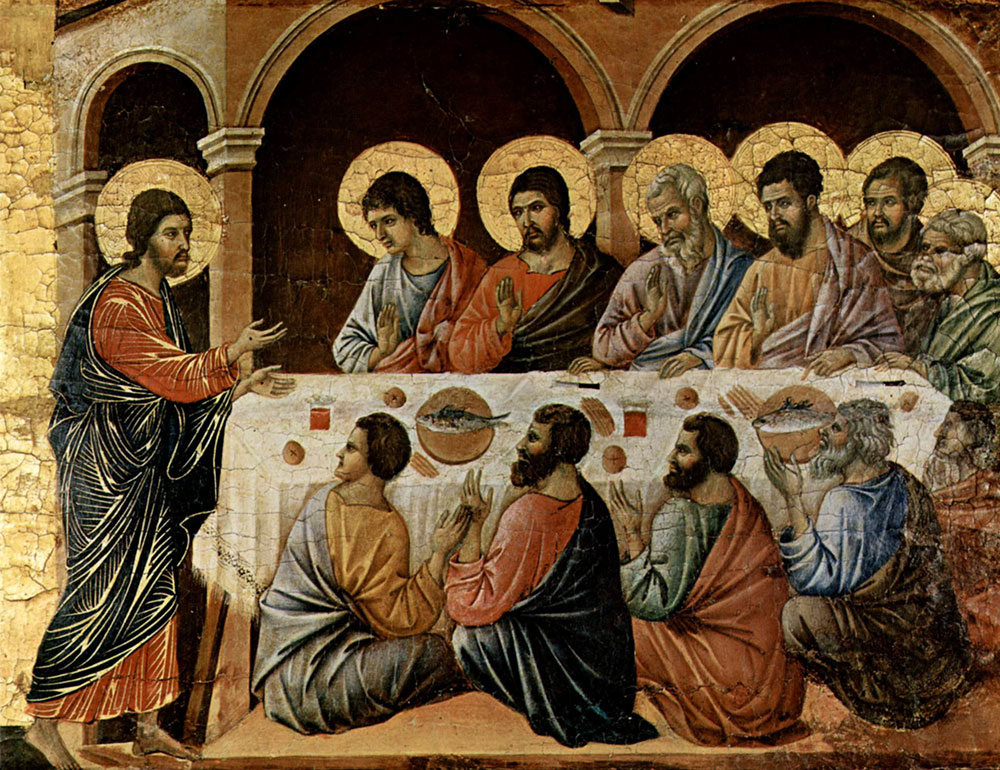Homily for the second Sunday of Ordinary Time (Year C). readings from Isaiah 62:1-5, Psalm 95 (96) & John (2:1-11). Theme: “God’s Transforming Love: From Water to Wine, From Ordinary to Extraordinary”
Today’s readings, my brothers and sisters in Christ, speak strongly of transformation, joy, and the richness of God’s love. In Isaiah, we hear God’s constant dedication to His people, transforming their misery into joy. The psalm encourages us to sing a new hymn to the Lord, acknowledging His wonderful works. Finally, in the Gospel, we see the first of Jesus’ miracles at the wedding in Cana, when water is turned into wine. These readings remind us that God’s love alters our lives, elevating them from the ordinary to the remarkable.
The Gospel in Focus: The Wedding at Cana. In today’s Gospel from John (2:1-11), Jesus goes to a wedding with His disciples and mother, Mary. A dilemma emerges when the wine runs out. This would have been a significant embarrassment for the bride and husband. In Jewish culture, hospitality was vital, and a lack of wine at a wedding may result in long-lasting disgrace. Mary, ever attentive and compassionate, senses the need and informs Jesus: “They have no wine.” Though His initial response seemed hesitant (“My hour has not yet come”), Jesus proceeds by telling the servants to fill six stone jars with water. The water is miraculously converted into wine—the best wine, according to the head steward. This first public manifestation of Jesus’ splendour shows His divine nature and boosts His disciples’ trust.
Mary’s Role: An Intercession Model
Mary’s significance in this gospel is deep. She recognises a need, presents it to Jesus, and trusts Him to act. Her words to the servants, “Do whatever He tells you,” have echoed through the centuries, calling all believers to trust Christ and do His will. Mary’s intervention at Cana reflects her continuous influence on our lives. She is a caring mother who recognises our troubles, prays for us, and directs us to Jesus. We can trust His capacity to transform our lives in the same way that she trusted her Son’s ability to turn water into wine. Mary’s intercession reminds us that we are never alone; as Liverpool football fans would say, she walks alongside us, bringing us nearer to her Son.
Reflections on the First Reading (Isaiah 62:1–5)
The first reading from Isaiah joyfully declares God’s love for his people. The prophet envisions a transformation: Jerusalem, once desolate and forsaken, will become the Lord’s delight, like a woman dressed for her wedding. “As a bridegroom rejoices over his bride, so will your God rejoice over you.” This motif emphasises the depth of God’s covenantal love. God is as completely dedicated to His people as a bridegroom is to his bride. This chapter invites us to focus on our status as God’s cherished children. Regardless of our flaws and shortcomings, God loves us and wants to renew us. His transformative love converts our humiliation into joy and our despair into hope.
Reflections on the Psalm (96:1-3, 7-10)
The psalm exhorts us to “sing a new song” to the Lord and proclaim His glory to the world. It is a hymn of praise commemorating God’s sovereignty and amazing works. The psalm reminds us that God is actively involved in our lives and is establishing His kingdom of justice and peace. This psalm addresses God’s transformational action in light of today’s Gospel. As the wedding guests marvelled at the abundance of wine, we were encouraged to appreciate and celebrate God’s goodness. When we acknowledge His blessings, our hearts overflow with appreciation, and our lives bear witness to His love.
What are the readings saying to me as a person.
- God’s Transformative Love:
The miracle of Cana demonstrates how Jesus transforms water into wine and everyday events into amazing ones. He infuses the commonplace parts of our lives—our jobs, relationships, and struggles—with His grace, transforming them into instruments of His glory. This metamorphosis encourages us to believe in God’s ability to renew ourselves. His grace may transform any situation into something hopeful. We may feel depleted or inadequate, like the empty jars at the wedding, but God’s love may revive us and give us fresh purposes.
- An abundance of God’s blessings:
The amount and quality of wine at Cana represent the richness of God’s blessings. He does not only provide what is required; He offers abundantly. This generosity demonstrates His desire for our happiness and fulfilment of life. We are asked to embrace this wealth in our spiritual path. When we trust in God’s providence and commit our wants to Him, we receive an abundance of His benefits in ways we never imagined.
- Mary’s Example of Faith and Trust.
Mary’s role at Cana is a powerful example of faith and trust. She recognises the need, takes it to Jesus, and then leaves the conclusion in His hands. Her faith in God’s power to act urges us to approach Him with the same trust. When we confront a hardship or feel overwhelmed, we can follow Mary’s example by presenting our concerns to Jesus and trusting Him to supply. Her maternal intervention reminds us that we are never alone in our challenges.
- A Call for Joy and Celebration.
The wedding at Cana is a joyous occasion, but Jesus’ presence transforms it into a celebration of God’s kingdom. As Christians, we are supposed to live joyfully, knowing that God is with us and His love is the ultimate source of hope and happiness. This joy is neither fleeting nor conditional; it is anchored in the belief that we are loved by God and are called to share that love with others. Like the wine at Cana, our lives can delight the people around us.
Practical Applications of Today’s Readings.
Recognise God’s Blessings: This week, consider how God has blessed your life. Recognise and praise Him in small daily moments and significant milestones.
Trust in God’s Timing: Just as Jesus’ “hour” at Cana unfolded according to God’s design, believe that God’s timing is impeccable. Give up your cares and let Him work His way.
Be Instruments of Transformation: We are asked to participate in God’s work, like the servants who followed Jesus’ instructions. Look for ways to help people and bring joy into their lives.
Turn to Mary for Intercession: When faced with difficulties, turn to Mary in prayer. Rely on her motherly care to ask for her intervention and guidance. Discover ways to celebrate and share the joy of God’s love with your family, friends, and community. Let your life reflect the abundance of grace you have received.
Dear friends, today’s readings remind us that God loves us deeply and alters our lives through His grace. He transforms the commonplace into the remarkable, much like water into wine. We can receive the totality of Jesus’ blessings thanks to Mary’s intercession and our faith in Him. Let us go forth with hearts full of gratitude, joy, and faith, eager to spread the good news of God’s love throughout the globe. May we, like the disciples of Cana, believe in Him and see His splendour in our lives. Amen.






